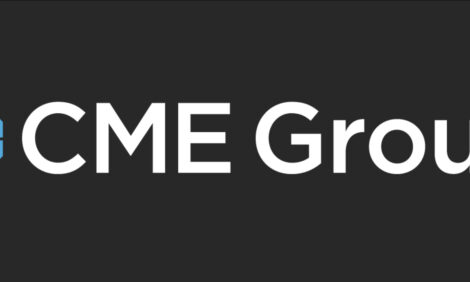



WTO Dispute on Hormone-treated Meat
GENERAL - The Appellate Body of the World Trade Organization (WTO) has published its decision on the EU's challenge of US and Canadian sanctions imposed on EU exports in retaliation for EU restrictions on imports of hormone-treated meat.In its longest decision to date, the Appellate Body reverses most of the conclusions previously reached by the WTO panel in this case. The EU strongly welcomes the reversal of the panel’s findings suggesting a WTO-incompatibility of the new measure the EU has taken to comply with the 1998 ruling of the Appellate Body concerning the ban of growth-promoting hormones for cattle.
The EU regrets the Appellate Body’s reversal of the panel’s finding that the continued US and Canadian sanctions on EU exports breach WTO rules. The Appellate Body ruling provides a sound basis for finding a solution to the dispute.
EU Trade Spokesman Peter Power welcomed the ruling on the EU hormones directive: "This is an important decision. The panel had no sound basis for questioning the WTO-legality of the new EU hormones directive. These clarifications will strengthen WTO members' ability to protect citizens."
The EU considers that the Appellate Body’s clarifications regarding important provisions of the WTO Agreement on Sanitary and Phytosanitary Measures are very important for the future, for the credibility of the WTO system, and that they strengthen WTO Members’ ability to protect the public health of their citizens when there is a sound scientific basis, as is the case of the new EU Directive.
Specifically, the Appellate Body confirmed the EU’s views that the panel made very serious legal errors when it assessed the new EU Hormones Directive and found that it does not comply with the WTO Agreement on Sanitary and Phytosanitary Measures. In particular, the Appellate Body confirms that the panel:
- was wrong to select and rely on scientific experts that lacked the required impartiality,
- erred in putting on the EU the burden to demonstrate the WTO-compatibility of its hormones directive;
- failed to establish the facts objectively;
- applied incorrect standards regarding the required scientific basis for health protection measures.
Given the numerous flaws in the panel’s analysis and the complex and contested nature of the facts, the Appellate Body was not able to complete the analysis. It therefore did not answer the question of the EU Directive’s compliance with the WTO Agreement on Sanitary and Phytosanitary Measures.
The Appellate Body also invalidates the panel’s ruling that the US and Canada breached WTO rules by unilaterally maintaining sanctions. While the EU regrets this aspect of the ruling, it welcomes the Appellate Body’s confirmation that it is not permitted for a WTO member to simply maintain sanctions when the losing party has adopted a new measure, as well as the Appellate Body’s clarification of the procedures that must be followed in that situation.
The Appellate Body recommends that the US, Canada and the EU re-initiate WTO dispute settlement proceedings to resolve the existing disagreement on the WTO-compatibility of the EU’s hormones ban and the continued US and Canadian sanctions. The EU will confidently engage in the next steps to solve this dispute.
Background
The EU has banned the use of growth-promoting hormones and the importing of meat treated with hormones since the early 1980s. This non-discriminatory ban was tested at the WTO by Canada and the US in 1996, and the WTO Appellate Body found in 1998 that the EU rules were not consistent with parts of the WTO Agreement on Sanitary and Phytosanitary Measures.
In 1999, the US and Canada received authorisation to impose sanctions on the EU – a 100 % import duty on EU exports to the value of US$116.8 million and CAN$11.3 million.
On 14 October 2003, a new EU Directive was adopted, based on thorough scientific grounding for the EU restrictions on the use of hormones in raising cattle and imports of meat treated with hormones. The scientific risk assessment concluded that for one of the six hormones in question (oestradiol 17ß) there was substantial evidence that it causes and promotes cancer and that it harms genes. The EU has permanently banned the use of this hormone for growth promotion purposes. In five other cases (testosterone, progesterone, trenbolone acetate, zeranol and melengestrol acetate), the current state of knowledge does not allow the risk to be accurately determined, but there is evidence suggesting potential detrimental effects on human health. Based on this evidence, the EU invokes the precautionary principle and provisionally restricts the use of those five hormones in the EU, as well as the sale of hormone-treated meat.
Further Reading
| - | You can view the Appellate Body reports on hormones disputes by clicking here. |
TheCattleSite News Desk


